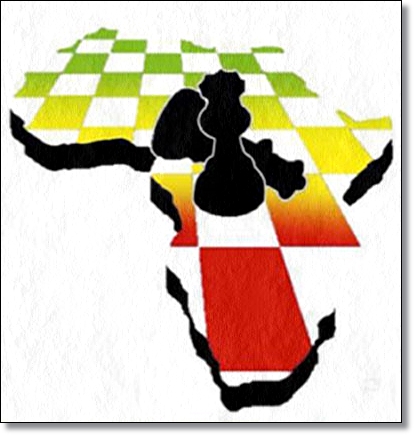Africa: Alternation of Power and ‘Straw Men’ Politicians

 |
Two major reasons, namely access to power and confiscation of power, could justify that state of affairs. Alternation of power is challenged in a context where access to power is achieved in unorthodox ways. In this case, political clout can only be secured via hard power i.e. military means. In this viewpoint, violence pervades the road to the presidency and politics is viewed as a zero-sum game. Some decades ago, the African political landscape was marked by the presence of military coups. Their frequency was so steady that it seemed like not a single trimester went by without a head of state being overthrown by the military. After a lull, a new trend, albeit embryonic at this stage, but just as devastating is taking root in African politics. Rebel groups pledging allegiance to Western countries, sometimes former colonizers, are publicly supported in their war efforts to overthrow incumbent governments under the guise of United Nations resolutions and the pretext of defending civilians caught up in the middle of atrocities. Thus, French troops alongside rebels groups led by Guillaume Soro and Alassane Ouattara sympathizers ousted incumbent Laurent Gbagbo accused of rejecting the results of the polls according to which he lost his presidential bid.
Another obstacle to political maturity is the violent repression and the muzzling of the press and civil society that follow the aftermath of contested elections. The incumbent refusing to accept their defeat uses the military forces to cling to power by instilling fear in the population, silencing the critics, and sowing death. Popular uprisings are outlets though which disillusioned citizens vocalize their frustrations and thoughts with regards to the political status quo. Though some might lead to the demise of the incumbent as in Tunisia and Egypt during the Arab Spring, many in Africa are suppressed with so much force that they emasculate the soul of the people.
Leaders make use of soft power to hinder democracy in African countries. In doing so, they vassalize the political elite and confiscate power using a variety of means. A commonly criticized procedure is the constitutional amendments through which the incumbent secures the right to participate ad vitam aeternam to elections without the emergence of dissent. Algeria, Burkina-Faso, Chad, Cameroon, Gabon, Namibia, Niger, Nigeria, Togo, Uganda, and Zambia are some examples of countries that experienced that phenomenon. Moreover, the ‘putinization’ of the political life annihilates the institutions checks and balances systems, and brings into question the accountability of public officials and transparency in their management of public affairs. To top it all, the ‘monarchization’ of republics whereby presidents groom their male progeny as their political heir further exacerbates the thriving of democratic aspirations of the citizenry. Faure Gnassignbé from Togo, Joseph Kabila from the Democratic Republic of Congo, and Ali Bongo in Gabon have successfully succeeded their father as head of their respective states. Though efforts from Karim Wade of Senegal and the sons of late Muammar Gaddafi were not crowned with success, the boys of Ellen Johnson Sirleaf of Liberia and Obiang Nguema of Equatorial Guinea occupy prominent role in their parent’s administration. There is constant speculation on their future political endeavors should their parent no longer be the president of the republic.
Weary of the Machiavellian maneuvers devised by politicians to cling to the presidential seat, and boosted by the ousting of Blaise Compaoré in Burkina-Faso in October 2014, Africans are determined henceforth to ensure the alternation of power to propel themselves in the bandwagon of democratic nations on earth. However, knowing the tools used by African leaders to entrench their power doesn’t warrant a true alternation of power. In fact, given the closer scrutiny expected and forecast in upcoming presidential elections on the continent, it is of paramount importance that efficient and tightly monitored control mechanisms be put in place within each country to avoid the recurrence of ‘straw men’ running for and be elected into public office.
If history is any indication, it is easy for a powerful incumbent to officially step down after a specific number of terms and come back to resume a position previously held after a hiatus assured by a sidekick. Even the fluidity of political affiliations and alliances on the continent should not be taken lightly in the implementation of genuine alternation of power. Instances of “opposition” political parties in total symbiosis with the ruling party are not alien to African politics. As each stakeholder seeks to maximize their influence, the people must remain vigilant so as not to be fooled by smoke screens. Political power is comparable to an iceberg. The electorate can only see its top in action thus the necessity of their perpetual watchfulness. The path to democracy in Africa has been plagued by a myriad of issues some quasi-endemic, others sporadic. It is imperative that the “straw man” syndrome doesn’t add up to the list of impediments.
By Stéphanie Mbella
The author steffiembe@gmail.com earned her PhD in African Studies from Howard University in Washington DC. She is a holder of a Bachelor’s of Arts in International Relations from San Francisco State University, a Master’s of Public Administration from Wayne State University and a Master’s in Education and Human Development from the George Washington University.
